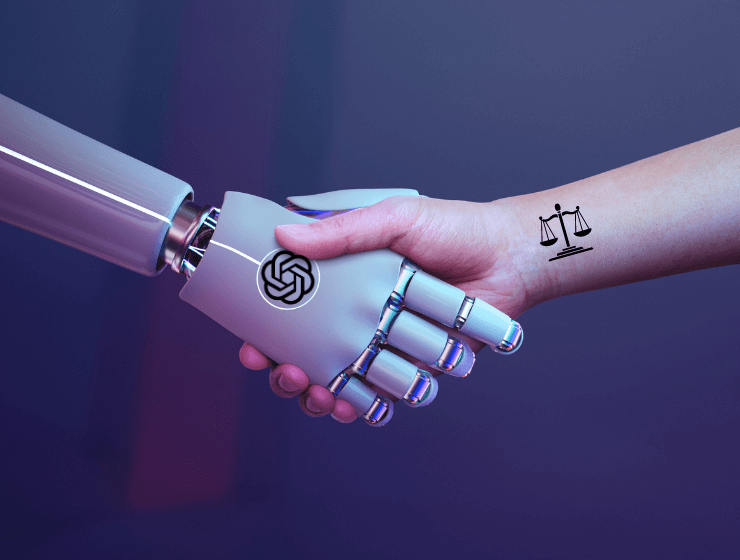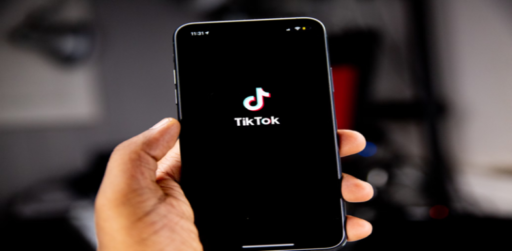The legal field is constantly evolving, and with the advent of advanced technologies, new opportunities arise for improving various aspects of legal practice.
One such technology that has gained significant attention is ChatGPT, an AI-powered language model developed by OpenAI. In this article, we will delve into the applications of ChatGPT in legal profession, exploring its potential benefits and challenges.
Introduction
As technology continues to reshape industries, the legal field is not exempt from its influence. ChatGPT, powered by the GPT-3.5 architecture, is an advanced language model that utilizes artificial intelligence to generate human-like text based on input prompts.
With its ability to understand and generate coherent responses, ChatGPT has shown promise in various applications, including legal practice.
What is ChatGPT?
ChatGPT is an AI-powered language model that leverages deep learning techniques to process and generate text based on user prompts.
It has been trained on a vast amount of diverse data, enabling it to understand and respond to a wide range of queries and prompts. This technology is designed to simulate human-like conversations, making it a valuable tool in the legal field.
The Role of ChatGPT in Legal Practice
Enhancing Legal Research
Legal research forms the foundation of any legal case or argument. With ChatGPT, legal professionals can benefit from its vast knowledge base and ability to analyze complex legal concepts. By inputting specific legal queries or topics, ChatGPT can provide relevant information, case precedents, and legal interpretations, saving valuable time and effort.
Improving Document Review and Analysis
In legal practice, reviewing and analyzing large volumes of documents can be a time-consuming and labor-intensive task. ChatGPT can assist in automating this process by quickly analyzing documents, identifying relevant sections, and extracting key information. This not only increases efficiency but also reduces the likelihood of missing critical details.
Assisting in Legal Writing and Drafting
Crafting legal documents requires precision and clarity. ChatGPT can help legal professionals in drafting contracts, briefs, and other legal documents by providing suggested language, formatting options, and even offering alternative clauses. I
t can serve as a virtual writing assistant, streamlining the writing process and improving the overall quality of legal documentation.
Top Benefits of Using ChatGPT in Legal Field
1 – Time and Cost Efficiency (continued)
The speed at which ChatGPT can process and generate text allows legal professionals to accomplish tasks more efficiently. Research that would typically require hours or even days can now be completed in a fraction of the time. This efficiency translates into cost savings, as legal practitioners can allocate their time and resources more effectively.
2 – Increased Accuracy and Quality of Work
ChatGPT’s ability to analyze vast amounts of legal information and provide relevant insights can enhance the accuracy and quality of legal work.
By leveraging the model’s knowledge base, legal professionals can access up-to-date legal precedents, case studies, and legislative information. This comprehensive understanding aids in making well-informed decisions and crafting stronger legal arguments.
3 – 24/7 Availability
Unlike human counterparts, ChatGPT is available 24/7, providing immediate access to legal information and support. This round-the-clock availability ensures that legal professionals can obtain assistance and insights whenever they need them, regardless of time constraints or urgent deadlines.
This accessibility can significantly improve productivity and responsiveness within the legal practice.
Also Read, ChatGPT Alternatives
Potential Challenges and Limitations of ChatGPT in Legal Practice
While ChatGPT offers numerous advantages, it is essential to be aware of the potential challenges and limitations associated with its use in the legal field.
Ethical Considerations
As an AI language model, ChatGPT operates based on the data it has been trained on. Legal professionals must be cautious when utilizing the model to ensure compliance with ethical guidelines, data privacy regulations, and client confidentiality. It is crucial to handle sensitive information responsibly and implement necessary safeguards to protect privacy and maintain ethical standards.
Lack of Contextual Understanding
ChatGPT lacks the ability to fully comprehend contextual nuances, which can lead to potential misinterpretations or incomplete responses.
Legal practitioners should exercise caution and apply critical thinking when relying on ChatGPT’s outputs. Human review and supervision remain essential to verify the accuracy and relevance of the information provided by the model.
Potential Bias and Inaccuracy
AI models like ChatGPT are trained on large datasets that may contain biases inherent in the data sources. Legal professionals should be mindful of this potential bias and actively seek to identify and rectify any discriminatory or inaccurate outputs.
Regular model monitoring, bias detection, and bias mitigation techniques are crucial to ensure fairness and accuracy in legal applications.
Best Practices for Utilizing ChatGPT for Legal Field
To maximize the benefits of ChatGPT in legal practice while mitigating potential challenges, several best practices should be followed:
Ensuring Data Security and Confidentiality
Legal professionals must prioritize data security and confidentiality when using ChatGPT. Implementing robust data protection measures, secure communication channels, and encryption techniques can safeguard sensitive legal information.
Adhering to legal and industry standards regarding data privacy is crucial to maintain client trust and confidentiality.
Conducting Regular Human Supervision and Review
Human supervision and review are essential to ensure the accuracy and quality of outputs generated by ChatGPT. Legal practitioners should carefully analyze and verify the information provided by the model, considering its context and relevance.
Incorporating human expertise and judgment in the decision-making process helps mitigate potential errors or misinterpretations.
Training and Fine-Tuning the Model for Legal Specifics
ChatGPT’s general-purpose training may not account for all legal nuances. Fine-tuning the model specifically for legal applications can improve its understanding of legal concepts, terminology, and context. Training the model on legal datasets, including case law, legislation, and legal precedents, can enhance its accuracy and make it more suitable for legal practice.
Case Studies: Real-World Applications of ChatGPT in Legal Practice
To demonstrate the practicality of ChatGPT in legal field, let’s explore a few case studies showcasing its real-world applications:
Automated Legal Research
A law firm specializing in intellectual property cases used ChatGPT to streamline its legal research process. By inputting specific case details and legal queries, ChatGPT quickly generated relevant case precedents, statutes, and legal interpretations.
This significantly reduced the time spent on research, allowing the firm to provide more comprehensive legal advice to clients.
Contract Review and Analysis
A corporate legal department integrated ChatGPT into their contract review workflow. The model analyzed contracts, identified potential risks, and suggested modifications based on predefined legal criteria. This accelerated the review process, ensuring contracts adhered to legal standards and minimizing the chances of oversight or errors.
Legal Writing Assistance
A solo practitioner utilized ChatGPT as a writing assistant for drafting legal documents. By providing prompts and desired document formats, the model generated suggested language, helped with citation formatting, and offered alternative clauses. This collaboration between the practitioner and ChatGPT improved the quality and efficiency of legal writing.
These case studies illustrate how ChatGPT can be seamlessly integrated into legal workflows, enhancing productivity, accuracy, and client service.
The Future of ChatGPT in Legal Field
As AI technology continues to advance, the future of ChatGPT in legal field holds immense potential. Ongoing research and development aim to address the limitations and challenges associated with the model, focusing on improving contextual understanding, reducing biases, and enhancing the model’s legal-specific knowledge.
With advancements in machine learning and natural language processing, we can expect even more sophisticated versions of ChatGPT tailored for legal practice. These future iterations may incorporate domain-specific training, allowing the model to comprehend legal intricacies and nuances more effectively.
Conclusion
ChatGPT offers significant opportunities for transforming legal practice. From enhancing legal research and improving document review to assisting in legal writing and drafting,
ChatGPT has the potential to revolutionize the way legal professionals work. However, it is crucial to remain mindful of the ethical considerations, contextual limitations, and potential biases associated with its use.
By following best practices, including regular human supervision, data security measures, and fine-tuning for legal specifics, legal practitioners can harness the power of ChatGPT while mitigating potential challenges. As AI technology continues to evolve, the ChatGPT in Legal field is poised to play an increasingly valuable role.











